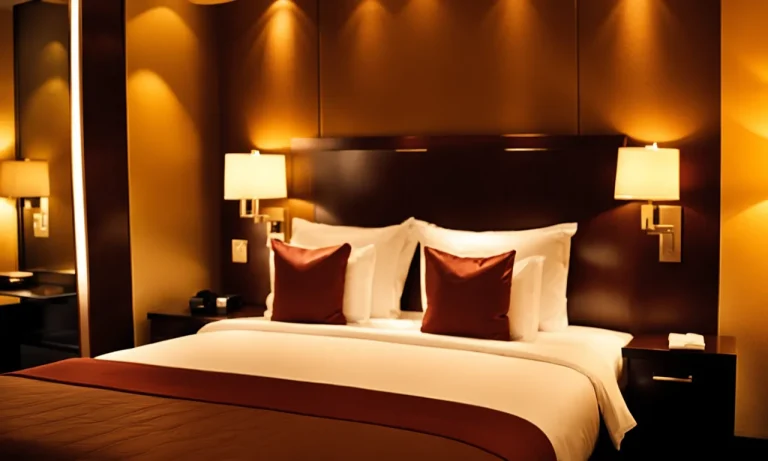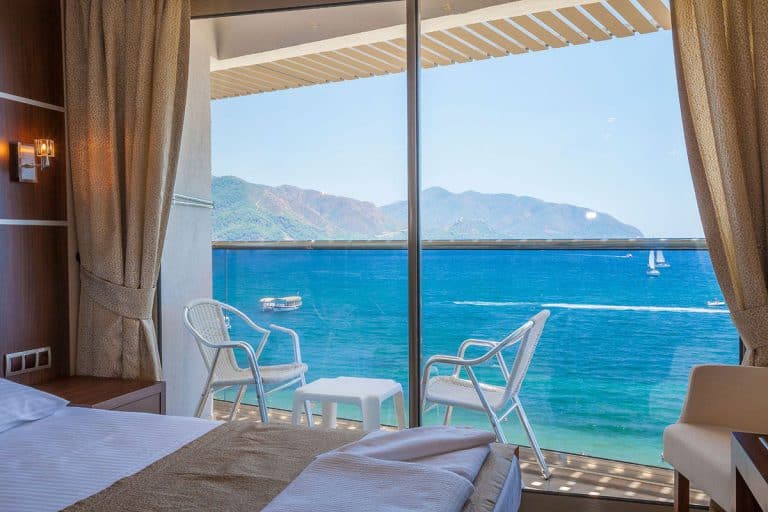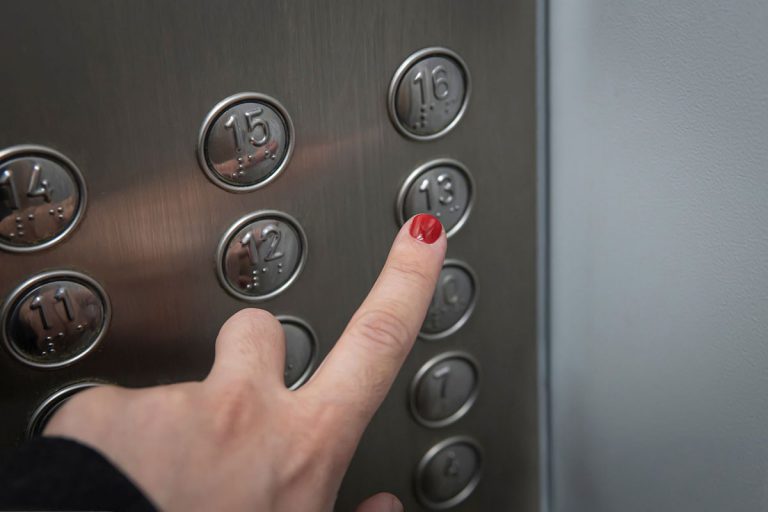Have you ever wondered how to keep your hotel room air conditioner running consistently?
If you’re short on time, here’s a quick answer to your question: It involves understanding the air conditioning system, adjusting settings, overriding sensors, communicating with hotel staff, and effectively using energy conservation modes.
In this article, we delve into the intricacies of hotel air conditioning systems, discuss why they may turn off automatically, and provide practical tips on how to keep them running. We’ll also look at the role of technology in modern hotel air conditioning systems and discuss the balance between personal comfort and energy conservation.
Understanding Hotel Air Conditioning Systems
If you’ve ever stayed in a hotel room during the summer months, you know how important it is to have a functioning air conditioning system. However, it can be frustrating when the air conditioner turns off automatically, leaving you hot and uncomfortable. To prevent this from happening, it’s important to understand how hotel air conditioning systems work.
General operation and control mechanisms of hotel air conditioning systems
Most hotel air conditioning systems operate using a central cooling system. This means that the air conditioning unit in your room is connected to a larger system that cools the entire hotel. The temperature and airflow in your room are controlled by a thermostat on the wall. When you adjust the temperature, the thermostat sends a signal to the central cooling system to adjust the temperature accordingly.
Some hotel air conditioning systems also have additional control mechanisms, such as motion sensors or timers. These features are designed to conserve energy and reduce costs by turning off the air conditioning when the room is unoccupied or during times when it’s not needed.
Typical reasons why a hotel air conditioner may turn off automatically
There are several reasons why a hotel air conditioner may turn off automatically. One of the most common reasons is that the thermostat in your room has been set to a specific temperature, and once that temperature is reached, the air conditioner will turn off. Another reason could be that the central cooling system has reached its capacity and needs to rest for a period before turning back on.
In some cases, the air conditioner may also turn off due to a malfunction or maintenance issue. For example, if the air filter is dirty or clogged, it can cause the air conditioner to shut down. Additionally, if there is a refrigerant leak or problem with the compressor, it can also cause the air conditioner to stop working.
To prevent these issues from occurring, it’s important to keep your hotel room clean and report any maintenance issues to the front desk. Regular maintenance and cleaning of the air conditioning unit can also help ensure that it operates efficiently and effectively throughout your stay.
Tips for Keeping Your Hotel Room Air Conditioner On
Staying in a hotel room with a malfunctioning air conditioner can be frustrating and uncomfortable, especially during hot summer months. Here are some tips for keeping your hotel room air conditioner on:
Adjusting settings on the air conditioning unit
If your hotel room air conditioner is turning off automatically, it may be due to the default settings on the unit. Adjusting the temperature and fan speed can help keep the unit running smoothly. Try setting the temperature to a few degrees lower than the current room temperature and increasing the fan speed to circulate the cool air more effectively.
Overriding automatic sensors
Some hotel room air conditioning units have automatic sensors that detect when a room is unoccupied. This can cause the unit to turn off, leaving you without cool air. To override these sensors, try placing a small object, like a book or piece of clothing, near the sensor to trick the unit into thinking the room is occupied.
Communicating with hotel staff or maintenance
If adjusting the settings or overriding the sensors doesn’t work, it’s important to communicate with the hotel staff or maintenance team. They may be able to fix the problem or provide a different room with a functioning air conditioner.
Using energy conservation modes effectively
Some hotel room air conditioning units have energy conservation modes that automatically turn off the unit after a certain period of time. While these modes can save energy and reduce costs, they can also cause inconvenience if you are trying to keep the unit on. To use these modes effectively, try setting the timer to the maximum amount of time allowed and resetting it periodically.
Remember, when it comes to keeping your hotel room air conditioner on, it’s important to be proactive and communicate with hotel staff if necessary. By following these tips, you can ensure a comfortable stay in your hotel room, no matter the temperature outside.
The Role of Technology in Hotel Air Conditioning
Overview of advanced technologies used in modern hotel air conditioning systems
Modern hotel air conditioning systems have come a long way from the traditional window units of the past. Today, hotels are utilizing advanced technologies to provide guests with the utmost comfort during their stay. One of the latest technologies being used in hotel air conditioning is the use of smart thermostats. These thermostats can be controlled remotely and learn the preferences of guests over time. This means that the temperature can be adjusted according to the guest’s liking even before they enter the room.
Another technology being used is the Variable Refrigerant Flow (VRF) system. This system can provide individual control over temperature, humidity, and air quality for each room. This is achieved through the use of multiple indoor units connected to a single outdoor unit. The VRF system is also energy-efficient as it can adjust the cooling output according to the number of guests present in the room.
How to effectively utilize these technologies to keep the air conditioner on
To effectively utilize the advanced technologies used in modern hotel air conditioning systems, guests should take advantage of the features provided. For instance, guests can adjust the temperature and settings of the air conditioner using the smart thermostat provided in their room. This will help to keep the air conditioner running smoothly and efficiently.
In addition, guests can also ensure that all windows and doors are closed while the air conditioner is on. This will prevent the cool air from escaping and help to maintain a comfortable temperature in the room.
Finally, hotels should regularly maintain their air conditioning systems to ensure that they are functioning optimally. This includes regular cleaning of air filters and coils, checking for leaks, and ensuring that the system is properly charged with refrigerant. By doing so, hotels can ensure that their air conditioning systems provide guests with the utmost comfort during their stay.
Also Read:
Environmental and Energy Considerations
Understanding the Environmental Impact of Continuous Air Conditioner Usage
Air conditioners are a significant source of energy consumption and greenhouse gas emissions. According to the US Energy Information Administration, air conditioning accounts for about 12% of the total energy consumed in residential buildings in the United States. Considering the environmental impact of air conditioners, it is essential to use them wisely and efficiently.
Continuous air conditioner usage not only impacts the environment but also results in higher energy bills. Therefore, it is crucial to understand how to balance comfort with energy conservation.
Balancing Comfort with Energy Conservation
To keep your hotel room air conditioner on, you need to balance your comfort level with energy conservation. Here are some tips to help you do that:
- Keep the room temperature at 78°F or higher, which is the recommended temperature by the US Department of Energy. Each degree below 78°F can increase energy consumption by 6-8%.
- Use ceiling fans to create a breeze that can make the room feel cooler. Fans consume less energy than air conditioners and can make you feel comfortable at higher temperatures.
- Use blackout curtains to block sunlight and reduce heat gain. This can help reduce the load on your air conditioner and save energy.
- Turn off the air conditioner when you leave the room or open windows to let fresh air in.
- Use energy-efficient air conditioners that have a high SEER (Seasonal Energy Efficiency Ratio) rating. The higher the SEER rating, the more energy-efficient the air conditioner is.
By following these tips, you can keep your hotel room air conditioner on while reducing your environmental impact and saving on energy bills. Remember to use air conditioners wisely and efficiently to ensure a sustainable future for our planet.
Conclusion
In conclusion, while maintaining a consistently comfortable temperature in your hotel room may sometimes be challenging, understanding how the air conditioning system works and how to adjust it can be instrumental.
By doing so, not only can you ensure your personal comfort, but you can also play a part in energy conservation, striking a balance that respects both your needs and the environment. Remember that hotel staff are often willing to assist with any issues or inquiries about the amenities.
Therefore, don’t hesitate to seek help if necessary. As we increasingly rely on technology, becoming savvy with modern amenities will enhance your overall hotel stay experience.






